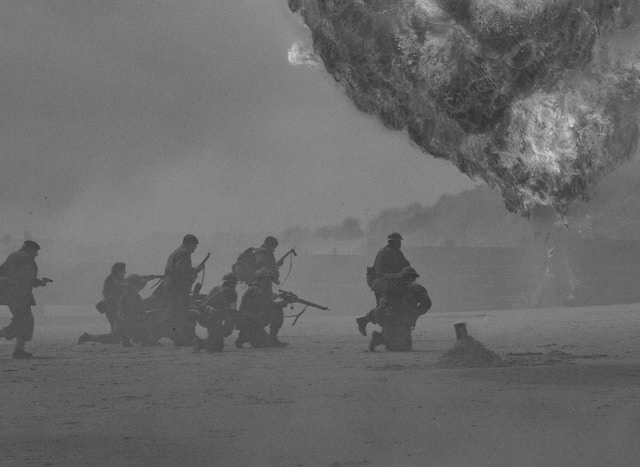In the tumultuous course of human history, conflicts and wars have been a recurring theme. Many nations have been embroiled in countless battles, strife, and warfare. However, amongst this backdrop of discord, there exists a fascinating question – which country has experienced the least number of official wars? This exploration may provide crucial insights into peacekeeping, diplomacy, and international relations. In this article, we venture into this intriguing query, embarking on a journey through the annals of global history to identify the country with the least number of wars.
The Concept of ‘War’
Before we dive into our quest to determine the country with the least number of wars, it is imperative to establish a clear definition of what constitutes as war. Wars are defined as armed conflicts or hostilities between two or more nations, states, or societies. It typically involves a significant loss of life and resources and can span over an extended period. However, in the context of this article, we will be considering official wars – those that have been formally declared by a government or ruling body.
The Impact of Wars
Wars are undoubtedly destructive and costly for all parties involved. It brings about significant losses in terms of human lives, economic resources, infrastructure, and societal stability. Furthermore, it disrupts the functioning of governments and may result in long-term ramifications such as political instability, societal divisions, and economic downturns. Thus, it is crucial for countries to strive towards maintaining peace and avoiding conflicts.
The Top Contenders for Least Wars
Firstly, it is essential to note that compiling a comprehensive list of all official wars throughout history is an arduous task. Many wars may have been undocumented, and some may not be officially recognized by governments. Therefore, our focus will be on identifying the countries with the least number of well-documented official wars.
Japan
Perhaps surprisingly, Japan is a strong contender for the country with the least number of official wars. Despite its participation in World War II and several other minor conflicts, Japan has only declared war on one country – Russia in 1904. However, the Russo-Japanese War lasted for less than a year and ended with a victory for Japan. Therefore, Japan can be considered as a nation that has experienced only one official war.
Iceland
Another country that may come to mind when considering the least number of wars is Iceland. This Nordic island nation has a long-standing reputation for being one of the most peaceful nations globally, consistently ranking high in the Global Peace Index. Iceland has never declared war on another country, making it a strong contender for this title.
Costa Rica
Costa Rica is yet another nation that boasts a remarkable record of peace and non-violence. The country has not been involved in any international wars since its independence in 1821. Additionally, Costa Rica has abolished its army in 1948 and is considered to have one of the most stable democracies in Latin America.
Factors That Contribute to Peaceful Countries
As we can see from the examples above, there are several factors that contribute to a country having a lower number of official wars. These include geographical isolation, a strong culture of peace and non-violence, diplomatic efforts towards resolving conflicts, and the absence of territorial disputes.
Geographical Isolation
Being isolated from other countries can act as a deterrent to potential conflicts. Countries such as Japan and Iceland are surrounded by oceans and have limited land borders with neighbouring nations. This isolation may make it more challenging for foreign forces to launch attacks and invade, thus reducing the likelihood of wars.
Culture of Peace and Non-Violence
Countries that possess a strong culture of peace and non-violence tend to have fewer official wars. This is evident in countries like Costa Rica, where there is a deep-rooted commitment towards pacifism and conflict resolution through peaceful means. In these nations, the focus is on fostering positive relationships and maintaining peace rather than military might.
Diplomatic Efforts
Countries that prioritize diplomatic efforts towards resolving conflicts also contribute to reducing the number of wars they are involved in. A prime example is Costa Rica’s active involvement in regional diplomacy, with a strong commitment to mediation and peaceful resolution of disputes.
Absence of Territorial Disputes
Territorial disputes between countries can often lead to tensions and eventual conflicts. Countries with stable borders and no ongoing territorial disputes, such as Iceland and Japan, are less likely to experience official wars due to these reasons.
Registered Charities
There are lots of charities in the USA, such as the Kevin White Foundation and Save the Children. that provide aid to those affected by war, and work towards promoting peace and stability in conflict zones. Such organizations are crucial in providing humanitarian aid, rebuilding communities, and advocating for peaceful resolutions to conflicts. By supporting these charitable causes, we can contribute towards creating a more peaceful world.
Conclusion
In conclusion, although determining the country with the least number of official wars may be a challenging task, Japan, Iceland, and Costa Rica are strong contenders for this title. These nations’ commitment to peace and non-violence through factors such as geographical isolation, a culture of peace, diplomatic efforts, and an absence of territorial disputes have played a significant role in their peaceful histories. As we strive towards creating a more peaceful world, it is essential to support organizations that work towards these goals and promote peace within our communities. Let us remember the devastating impact of wars and strive towards finding peaceful resolutions to conflicts. So, we can only hope for a future where all countries prioritize peace and cooperation over conflict and violence. Thus, setting an example of unity and harmony for generations to come. After all, it is said that “peace is not the absence of war but the presence of justice.” So let’s continue working towards creating a world where peace and justice prevail.
